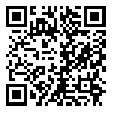This Day in Unitarian Universalist History November 28
1909 – Lotta Hitschmanova was born in Prague, Czechoslovakia. She was anti-Nazi and went into exile in Canada when World War II threatened. Her parents were imprisoned in Auschwitz during the war and she never heard from them again. She founded the Unitarian Service Committee of Canada and directed it for 40 years to help the children of Europe. The Unitarian church in Ottawa, Canada where she attended was an important supporter of her work. The government of France made her Chevalier of Public Health in 1950 and Prime Minister Indira Gandhi named her Woman of the Year for India in 1975. Read more about Lotta Hitschmanova at: www.HarvardSquareLibrary.org – the digital library of Unitarian Universalism.
The post November 28 first appeared on Harvard Square Library.

